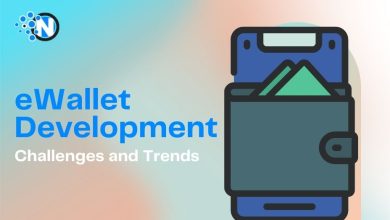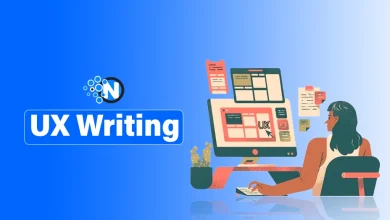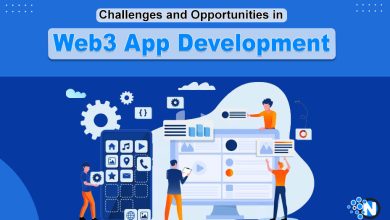How to Land Your Dream Programming Job: A Step by Step Guide for Developers

The tech industry is booming, and programming jobs are in high demand across various domains, from web development to artificial intelligence.
However, getting your dream programming job requires more than just coding skills. Whether you want to work at a startup, a big tech company or a specific industry, your journey needs strategy and deliberate action.
In this comprehensive guide, I will guide how to land your dream programming job and advance your career as a developer.
Let’s start!
Guide to Land Your Dream Programming Job
Identify Your Programming Dream Job
First off, I’ll ask you to define what your own “dream job” means. The most fulfilling careers are those that align with your values and passions. Most people don’t. So, what are you waiting for?

Ask yourself these questions:
- Reflect on your values: Does work-life balance matter more than money? Do you want remote flexibility or do you thrive in collaborative offices?
- Research company culture: Look up companies where developers are happy—whether that means flat orgs, mentorship opportunities or innovation focused environments.
Some developers are satisfied with deep specialization, others with versatility across multiple domains. Think about whether you want to be an expert in specific technologies or work across multiple platforms and languages. Imagine your ideal day—would you rather build new features, optimize existing systems or solve complex architectural problems?
Master Technical Skills
Once you have your target in sight, focus on developing the technical skills that will set you apart. Employers always look for candidates who demonstrate both basic knowledge and specialized skills relevant to their needs.
Core Programming Fundamentals
A strong foundation is always important no matter what your speciality. Technical interviews often test these fundamentals so invest time in mastering:
Data structures and algorithms are the backbone of efficient problem solving. Practicing these concepts regularly prepares you for interviews and improves your everyday coding. System design principles help you design scalable, maintainable solutions – a skill that becomes more important as you progress in your career. Testing methodologies show you care about quality code and sustainable development practices.
Technology Specific Skills
Research job postings for your dream jobs and find the technical requirements that keep showing up. This will tell you what to focus on in your development journey:
- Programming languages: Be proficient in languages used in your field (JavaScript/TypeScript for web dev, Python for data science/ML, etc.).
- Frameworks and libraries: Know the tools professionals use every day (React, Angular, TensorFlow, Django, etc.).
- Development environments: Be familiar with industry standard tools and workflows (Git, CI/CD pipelines, Docker).
Depth matters more than breadth. Being good at a few things is more valuable than being okay at many.
Remember depth matters more than breadth. Being good at a smaller set of technologies is more valuable than being superficial across many tools.
Build a Portfolio
Your portfolio shows your skills better than any resume. While credentials matter, tangible evidence of your work speaks volumes to potential employers.
Open-source contributions show you can work on existing codebases and follow team standards. This is close to real-world development and shows you can work with others’ code. Personal projects show your initiative and ability to take an idea from concept to completion.
Documentation quality separates amateur from professional work:
- Document your work: Include detailed READMEs, deployment instructions and explanations of technical decisions.
- Showcase problem-solving: Include case studies of the challenges you faced and how you solved them.
Pick your portfolio projects to show the skills required for your target roles. Quality always trumps quantity—a few great, well-documented projects usually impress more than many half-baked ones.
Establish Your Professional Brand
In a crowded market, you need to stand out. A professional identity helps you separate yourself from other qualified candidates and attract opportunities that match your skills.
Content creation is one of the best branding strategies. Writing technical articles or creating educational content shows your knowledge and helps others. This makes you a contributor to the broader development community.
- Start a developer blog: Share insights, tutorials and learnings to be seen as a thoughtful practitioner.
- Engage on technical platforms: Contribute to Stack Overflow, GitHub or relevant Discord channels.
Your online presence needs to be curated. Optimize your LinkedIn profile with keywords for your target roles so recruiters can find you when searching for those skills. Develop communication skills to explain complex technical concepts simply, a skill that’s becoming more important for top developers.
Network Strategically
Many premium opportunities never hit public job boards. Building a professional network gets you access to those hidden positions and inside info on company cultures.
The best networking happens organically through real connections not transactional interactions. Focus on building relationships based on shared interests and mutual support. Industry events are natural places to make those connections:
- Attend industry events: Go to hackathons, conferences and meetups where hiring managers are looking for talent.
- Find mentors in target companies: Seek guidance from people who have achieved what you’re going for.
Consider informational interviews as a low-pressure way to learn about specific companies or roles. These conversations allow you to get insider perspectives while introducing yourself to potential future colleagues or hiring managers. Remember networking is a two-way street—look for opportunities to add value not just take it.
Customise Your Application Materials
Generic applications don’t cut it. Recruitment research shows that customised application materials outperform one-size-fits-all approaches. The extra effort shows you’re serious and pay attention to detail.
As this article from Gravitas Recruitment Group points out, your resume should be customised for each application, highlighting the experiences and skills most relevant to the role. Use the job description as a guide, make sure your most applicable qualifications are front and centre. Cover letters give you space to explain not just your qualifications but why you love the company’s mission and how your unique background makes you the perfect fit.
Preparation goes beyond documents:
- Prepare your portfolio showcase: Be ready to walk interviewers through projects that demonstrate relevant skills.
- Research thoroughly: Show you know the company’s products, technical challenges and business model.
This level of customisation takes extra time but gets you a much higher response rate from hiring managers who know when you’ve put in the effort to understand their needs.
Master the Interview
Technical interviews require preparation. Know the common formats and expectations.
Algorithm-based interviews are common. Regular practice with platforms like LeetCode or HackerRank helps you develop pattern recognition and quick problem-solving skills that these assessments test. System design questions evaluate your ability to design scalable solutions to complex problems—important for senior roles.
Beyond technical questions, prepare for behavioral questions that test your soft skills:
- Rehearse behavioral questions: Prepare specific examples of teamwork, conflict resolution and leadership.
- Prepare thoughtful questions: Ask about technical architecture, team dynamics and growth opportunities.
Remember, interviews are a two-way street—they’re your chance to evaluate if the company and role is your dream job. The questions you ask leave a lasting impression on the interviewer, showing your priorities and thoroughness.
Learn to Negotiate
When offers come in, advocate for yourself professionally. Many developers leave a lot of money on the table by accepting the first offer without negotiating. Research shows that employers expect reasonable negotiation and often build that into the first offer.
Knowing the market rate is key to these conversations. Research the typical compensation for your experience level, location and role using resources like Glassdoor, Levels.fyi or industry salary surveys. Consider the whole package beyond base salary—benefits, equity, work arrangements and growth opportunities all contribute to job satisfaction.
Preparation reduces anxiety and improves outcomes:
- Practice negotiation conversations: Rehearse key talking points and responses to pushback.
- Maintain relationships: Negotiate respectfully, regardless of outcome.
Even small improvements to your initial offer can add up over your career, so this sometimes uncomfortable conversation is worth it.
Continuous Learning and Adaptation
The journey doesn’t stop once you get a job. Technology changes fast, so continuous learning is key to long term career success. Make a deliberate learning plan that balances deepening your current skills with learning new technologies in your field.
Feedback accelerates growth. Ask for feedback on your work rather than waiting for reviews. This way you can adjust quickly and show you care about improvement.
- Track your wins: Document your achievements for future career moves.
- Reassess regularly: As the industry changes, reassess whether your current path still aligns with your evolving definition of a “dream job”.
The most successful developers see their careers as journeys not destinations. This means you’ll be flexible as the industry and your priorities change over time.
The Often Overlooked Elements
Beyond technical skills, several factors impact long term career satisfaction and advancement. Emotional intelligence, your ability to collaborate, handle criticism and navigate team dynamics—often determines your effectiveness within organisations. Technical brilliance alone rarely makes up for challenges in these areas.
Business understanding increasingly differentiates highly valued developers. Showing how your technical work ties to business objectives makes you more valuable to organisations and opens up leadership roles.
Adaptability and resilience are the foundation for sustainable careers:
- Adaptability: Be willing to learn new technologies as needs change.
- Resilience: The job search process involves rejection—perseverance is what separates the successful from the rest.
These are especially important during industry transitions, economic downturns or other challenging periods in your career.
Final Thoughts
Getting your dream programming job is rarely an accident. By building relevant skills, making meaningful connections, showing your work and approaching the application process strategically you’ll increase your chances of success.
Remember your definition of a “dream job” may evolve as you gain experience. Stay open to unexpected opportunities that might be even more fulfilling than your initial vision. The most successful developers combine technical excellence with continuous adaptation—both in their skills and in their career aspirations.




